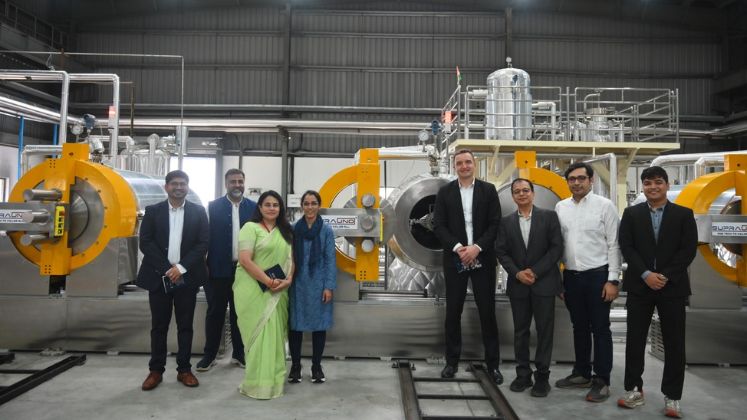
Arvind Limited, one of India’s leading textile-to-retail conglomerates, in partnership with H&M Group and Indian start-up Deven Supercriticals Pvt. Ltd., has inaugurated the country’s first supercritical CO₂ dyeing machine at its Ahmedabad facility.
The machine, globally patented under the SUPRAUNO brand, replaces water with supercritical carbon dioxide in the fabric dyeing process. At commercial scale, the technology delivers up to 76% water savings, around 67% energy savings, and approximately 90% reduction in chemical use compared with conventional dyeing methods, while also cutting effluent discharge significantly.
The initiative marks the outcome of a three-way collaboration: Deven Supercriticals providing the patented technology, Arvind enabling industrial-scale deployment, and H&M Group supporting adoption in line with its sustainability targets. The partnership aims to accelerate the transition of innovations from laboratory development to bulk-scale application.
Punit Lalbhai, Vice Chairman of Arvind Ltd., said the inauguration was a defining moment for the Indian textile industry. He stated that by hosting the world’s first commercial-scale SUPRAUNO machine, Arvind was reaffirming its commitment to pioneering sustainable solutions and setting global benchmarks.
Omang Narang, Production Manager for H&M Group in India, said the technology could make electrification of textile processing more feasible. He noted that wet processing remained one of the most impactful stages in the value chain and argued that energy- and water-efficient technologies such as this would help advance the company’s sustainability ambitions.
Dr Swapneshu Baser, Founder of Deven Supercriticals, described the installation of the SUPRAUNO technology at commercial scale as both a technological milestone and a step towards protecting water, energy and health for future generations. He added that the partnership with H&M Group and Arvind had been vital in making the project a reality.
The Ministry of Textiles has also backed the project, which aligns with the Government of India’s strategy to build a sustainable, circular and globally competitive textile sector, while positioning Indian innovation at the forefront of global textile transformation.






